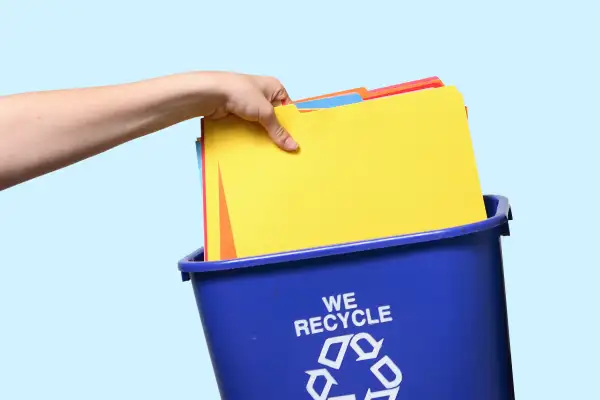How Long Must I Keep All My IRA Paperwork for Taxes?

Q: We have been keeping all our IRA documentation since the IRS guidelines (to my understanding) say that you need to keep it forever. However, withdrawals from the IRAs that we have are all taxable income, so why is it necessary to keep the very old statements?
A: Record-keeping requirements are stringent for traditional IRAs, whose contributions are generally tax-deductible on the way in while withdrawals are taxable on the way out. “The paperwork you keep is to validate your claim of what’s taxable and what isn’t,” says Greg McBride, chief financial analyst for Bankrate.com.
Those particulars will vary with your individual situation. If you and your spouse, if applicable, never had access to a workplace 401(k) or equivalent while you were contributing to your traditional IRA, then that standard tax treatment should apply and you will owe taxes on the withdrawals.
If you're certain that all of your contributions were deductible on the way in, then you don't have to keep meticulous paperwork, McBride says. After all, you'll be paying taxes on everything in that scenario, and the Internal Revenue Service certainly won't quibble with that.
But if you or a spouse did have access to a workplace 401(k), then it's possible that some of your contributions were taxed for the year you made them. That would have depended on your income during the year in which you made the contribution. For 2016, if you’re filing as single or head of household, you can take a full deduction up to the contribution limit if your modified adjusted gross income is $61,000 or less; you can take no deduction if your income is $71,000 or more and a partial deduction if your income falls between those amounts. For those married filing jointly, you can take a full deduction up to the contribution limit if your modified adjusted gross income is $98,000 or less and no deduction if it is $118,000 or more, and a partial deduction if it lies between those amounts.
If you already paid tax on some of your contributions, you can withdraw them tax-free. You’ll have to hang on to your tax returns indefinitely to prove that, McBride says. (You’ll still be taxed on any earnings in a traditional IRA.) Also keep the annual IRA statements that showed your contribution for the year.
IRS Form 8606 will help you track your nondeductible IRA contributions; you file it to report nondeductible contributions and some withdrawals. There’s a section in the instructions for Form 8606 on “What records must I keep?” which outlines all the forms you should file away.
Hang onto either the original paper documents or scanned digital copies of the originals. “It can’t just be the spreadsheet you made yourself,” McBride says. “That won’t fly with the IRS.”
